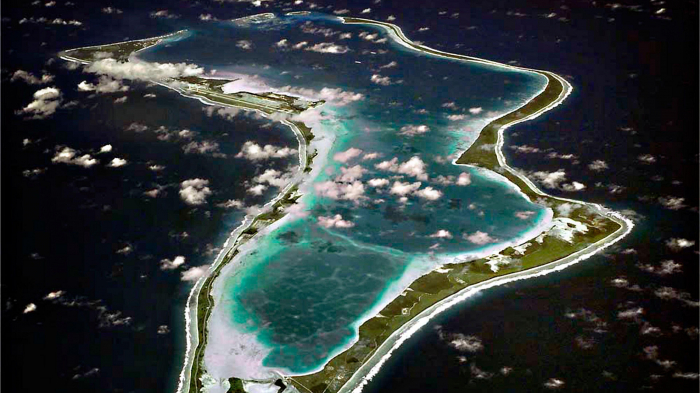The UK expelled the Chagossians in the 1960s and 1970s, in what has been described as a crime against humanity, when it retained possession of what it called the British Indian Ocean Territory, or BIOT, after Mauritius gained independence in 1968.
The agreement follows 13 rounds of negotiations that began in 2022 after Mauritian arguments for sovereignty were recognised by the international court of justice (ICJ), the UN general assembly and the international tribunal of the law of the sea (Itlos) in 2019 and 2021.
Britain was found to have unlawfully separated the Chagos Islands from Mauritius before granting independence in 1968. The UK initially defied UN votes and court judgments that demanded it return the islands, emphasising that the ICJ ruling was only an “advisory opinion”.
Under the agreement, announced on Thursday, the UK will retain control of the UK-US military base on Diego Garcia, one of the islands. The UK severed the Chagos Islands from the rest of Mauritius and expelled between 1,500 and 2,000 islanders so that it could lease Diego Garcia to the US for military use, and the two allies have since operated the base jointly.
The Guardian understands that in the treaty there will be a right to return to all of the islands in the Chagos archipelago except for Diego Garcia.
The UK foreign secretary, David Lammy, said the UK government had secured the future of the military base “as well as guaranteeing our long-term relationship with Mauritius, a close Commonwealth partner”.
The US president, Joe Biden, welcomed the agreement as a “clear demonstration that … countries can overcome longstanding historical challenges to reach peaceful and mutually beneficial outcomes”.
The campaign challenging British ownership of the Chagos archipelago included the Mauritian ambassador to the UN, Jagdish Koonjul, raising his country’s flag above the atoll of Peros Banhos in a ceremony in February 2022 to mark the first time Mauritius had led an expedition to the territory since the expulsions.
Chagossians have held various views about what justice would look like, including what the future status of the islands should be. While there are those determined to exercise their right to return, some believe only about 50 people would do so.
Many Chagossians wanted self-determination, fearing their identity would be lost in any transfer of ownership to Mauritius, which does not recognise the islands as an independent territory.
An attempt to halt the negotiations, on the basis that the Chagossians were not consulted or involved, failed.
Chagossian Voices, a community organisation for Chagossians based in the UK and in several other countries, condemned the UK government’s lack of consultation with them before Thursday’s announcement.
It said: “Chagossian Voices deplore the exclusion of the Chagossian community from the negotiations which have produced this statement of intent concerning the sovereignty of our homeland. Chagossians have learned this outcome from the media and remain powerless and voiceless in determining our own future and the future of our homeland. The views of Chagossians, the Indigenous inhabitants of the islands, have been consistently and deliberately ignored and we demand full inclusion in the drafting of the treaty.”
Other Chagossians have been focused on their rights and status in the UK. In 2022, the Home Office said descendants of islanders forcibly evicted would soon be able to apply to become British citizens.
Human Rights Watch, in a report last year, said the UK should pay full and unconditional reparations to generations affected by its forcible displacement of Chagos Islands inhabitants in the 1960s and 70s, calling it “an appalling colonial crime” and a crime against humanity by the UK and the US.
Three of the four candidates in the Conservative leadership contest criticised the decision to return the islands to Mauritius, even though the negotiations began under the Tory government.
There were 11 rounds of negotiations with the previous government and two under the current Labour administration, with Jonathan Powell, who served as Tony Blair’s chief of staff, appointed last month to head up the talks.
The UK government said the political agreement was subject to a treaty and supporting legal instruments being finalised, which both sides had committed to do as quickly as possible.
AzVision.az















































